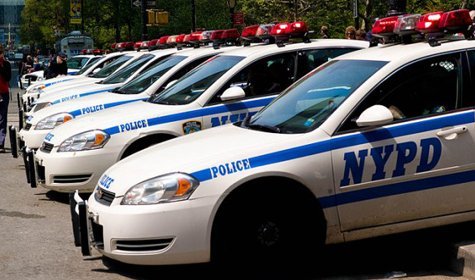Following a tragic incident in which two New York Police Department officers, Rafael Ramos and Wenjian Liu, were brutally murdered, police across the city have been protesting by refusing to issue summonses and make arrests for low-level crimes that do not imminently threaten the public. However, the shift in focus from small-scale, discretionary infractions to hard crimes with victims has been praised by some in the media who believe that the police protest, called a slowdown, should be transformed into permanent policy. Rolling Stone writer Matt Taibbi penned, “This police protest, unwittingly, is leading to the exposure of the very policies that anger so many different constituencies about modern law-enforcement tactics,” noting the fact that NYPD’s “broken windows” style of policing, in which the enforcement of smaller, discretionary crimes in “hot spot” neighborhoods is given top priority, has been pinpointed by community activists as a source of tension between police and residents in targeted neighborhoods. According to NYPD police officers interviewed by The Daily Beast, many New York cops enjoy the slowdown and prefer focusing on what they call “good arrests” that protect the public, rather than discretionary offenses aimed at raising revenue for the city.
However, city officials and NYPD administrators are fighting back, fearing lost revenue, as, between December 29, 2014 and January 4, 2015, the number of summonses issued have dropped by 92% and arrest totals have plunged by 56%. According to the New York Post, NYPD police precincts are being ordered to submit activity sheets proving that officers are meeting arrest and summons quotas, with those who fail to meet numbers facing punishments. “Police officers around the city are now threatened with transfers, no vacation time and sick time unless they write summonses… This is the same practice that caused officers to be labeled racist and abusers of power,” said a police union rep, criticizing NYPD’s use of arrest and summons quotas.
A police officer interviewed by the New York Post said that cops at his precinct were dispatched to a driver checkpoint last Thursday and told that they would not be allowed to take a lunch break or return from the checkpoint until at least two summonses were issued. Said the officer, “And the majority of [new] summonses written aren’t protecting the public in any way… But now they’re realizing how much revenue the city is losing, and they’re enforcing their will upon us… To have all the manpower utilized for the sole purpose of writing summonses is a very dangerous way to utilize manpower. This is not what we’re out here for.” An announcement posted at the officer’s precinct indicated that, until officers catch up on revenue-generating activities, no additional vacation days would be approved and no sick days would be authorized without a doctor’s note.
NYPD Commissioner Bill Bratton admitted at a press conference that, despite the drop in discretionary arrests and summonses, crime overall has been on the decline during the slowdown.
This article originally appeared on Bennswann.com: http://benswann.com/slowdown-sanctions-nypd-orders-cops-to-meet-arrest-summons-quotas-or-lose-vacation-time-sick-leave/?utm_source=newsletter&utm_medium=text&utm_campaign=nl

